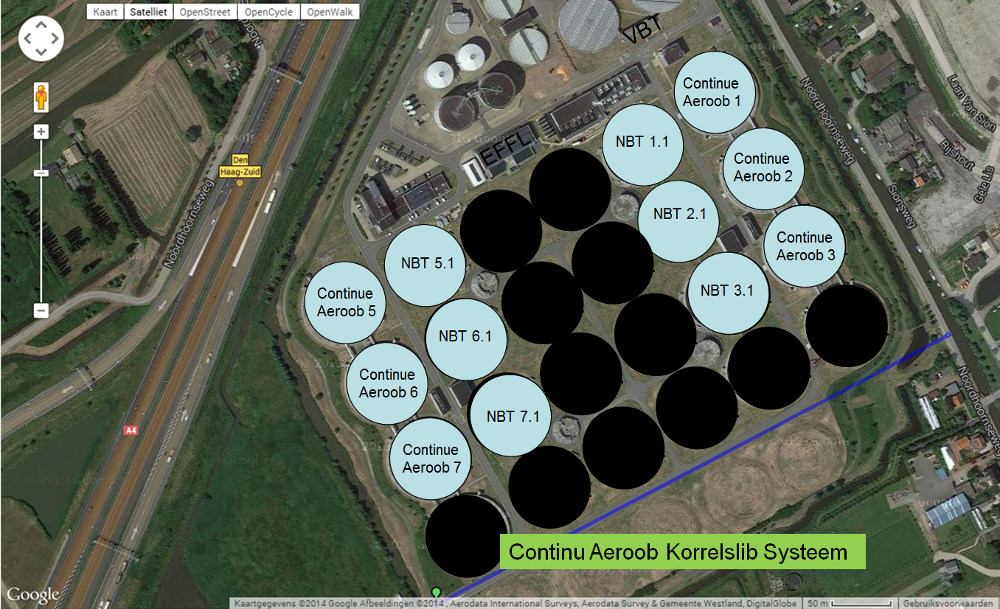Continuous innovation using aerobic granular sludge for conventional activated sludge systems
ThemeWastewater Treatment

Summary
Since the discovery of the advantageous properties of aerobic granular sludge at TU Delft at the end of the nineties, the global research for applications in wastewater treatment technology increased rapidly. The research at TU Delft in collaboration with Royal HaskoningDHV and many parties in the Dutch water sector resulted in the development of a now widely internationally used aerobic granular sludge process (Nereda®) which compactness, cost and energy efficiency combines with extensive biological removal of COD, nitrogen and phosphorus compounds.
Currently, existing treatment plants with a conventional activated sludge system face challenges with respect to energy, converting waste to resource and reduction of the required surface area. Aerobic granular sludge is a promising technology to face these challenges. Where Nereda® is a semi-continuous system, the integration of aerobic granular sludge in existing infrastructure can provide a solution if a full-continuous system can also be operated stable.
For that reason TU Delft, the Delfland Water Board, the Rijnland Water board, Evides, Delfluent Services BV, Evides and Royal HaskoningDHV conduct research on the development of a continuous aerobic granular sludge process for conventional activated sludge systems. In that respect specifically a (re)design will be worked out for wastewater treatment plant Harnaschpolder. The study is conducted under the direction of a steering committee in which the six organizations are represented.
Start of Research
September 2016
End of Research
September 2020
Researcher
- Viktor Haaksman
- Mario Pronk
- Mark van Loosdrecht
- Edward van Dijk
- Oscar Helsen
- Sanne van Dijk
- Sigrid Scherrenberg
- Mirabella Mulder
- Delft University of Technology
- Delfland Water Authority
- Rijnland Water Authority
- Evides Industrial Water
- Royal HaskoningDHV
- Delfluent Services B.V.
Viktor Haaksman
[email protected]

